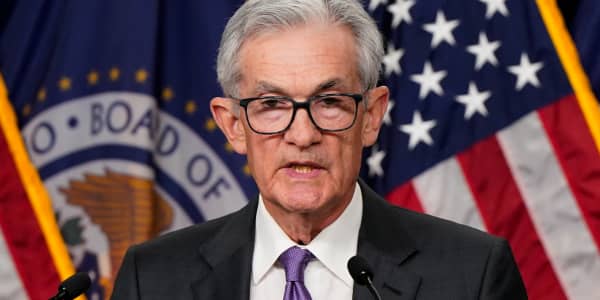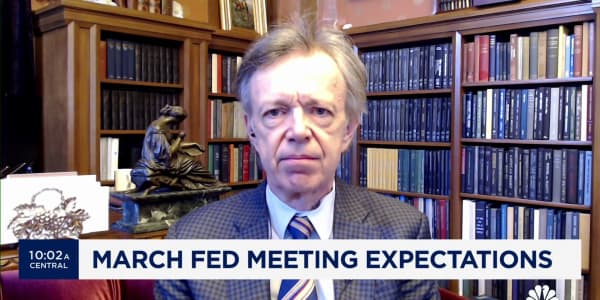
Crude oil's free fall may be close to bottoming, according to CNBC's January Fed Survey.
Wall Streeters in the survey forecast that the lowest price for WTI crude in the current downturn will be $40 on average per barrel, about $6 below its current price. Among the 33 economists, money managers and investment strategists surveyed, the range of bottom estimates was $25 to $48.
Crude oil futures have tumbled nearly 60 percent from the recent peak of $107 in June.
Fifty-six percent respondents say the steep slide in oil prices is primarily the result of excess supply. Only 13 percent say plunging oil is a result of weak demand, while 28 percent say it is equal parts a supply and demand issue.
Read MoreRate hike now seen in September: CNBC Fed survey
The Fed has said lower oil prices continue to be a net positive for the economy as consumers are left with more money to spend from their savings on gas. Plunging oil is seen boosting U.S. growth, with respondents predicting lower oil prices adding 0.27 percent to the gross domestic product in 2015. Meanwhile, they expect lower oil will reduce core inflation, which does not include food and energy, by 0.28 percent.
But the steep slide in commodities is not without risks, particularly their impact on inflation.
Gold rises on soft dollar ahead of Fed rate meeting
"Low wage growth and a lack of inflation pose more than idle threats to economic growth," said survey respondent Kevin Giddis, head of fixed income capital markets at Raymond James/Morgan Keegan. "If progress isn't made on both of these fronts, then there is a risk, coupled with a global slowdown, that the U.S. growth rate would retreat to levels that could be compared to a recession."
Beyond the effect on the domestic economy, geopolitical risks from lower oil prices could drag on growth.
"The biggest risk, from the decline in oil and commodity prices, is the transmission of a Russian recession to Europe, China, and beyond although it is unlikely to derail the U.S. expansion," said another survey respondent, Hugh Johnson, founder of Hugh Johnson Advisors. "With luck, we will muddle through."





